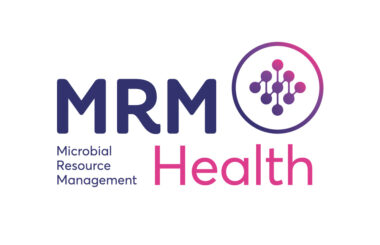People with a BRCA1 gene mutation, which increases breast and ovarian cancer risk, are also at increased risk of impaired fertility, Monash University-led research has confirmed in preclinical models and human tissue samples.
The BRCA1 and BRCA2 genes protect against breast and ovarian cancer, and a mutation of either gene increases the risk of developing cancer. An estimated 1 in 350 women have a BRCA1 or BRCA2 mutation.
Published in The Lancet’s EBioMedicine journal, the study found that having no BRCA1 gene in mice reduced litter size and quality of their eggs, particularly with advancing age. Egg maturation rates were decreased by 45 per cent in reproductively aged mice lacking BRCA1.
The study also analysed hormone levels in the blood and estimated egg numbers in the ovarian tissue of women with BRCA mutations.
Senior author Professor Karla Hutt, head of the Monash Biomedicine Discovery Institute’s (BDI) Hutt Laboratory, said that previous preclinical models indicated that partial loss of BRCA1 function may reduce egg numbers in the ovary.
“The potential impacts of complete loss of BRCA1 function on egg number and fertility had never been studied,” she said.
“Using a unique mouse model with targeted loss of the BRCA1 gene specifically in eggs, this study also comprehensively assessed fertility across the entire reproductive lifespan. The data show that BRCA1 is important for maintaining egg number, quality, and fertility.”
The mice were bred with no BRCA1 gene in their eggs, which models a BRCA1 gene mutation causing complete loss of BRCA1 function. While their fertile lifespan length was not altered, the mutation led to reduced litter sizes and egg numbers. Egg maturation was also impaired compared to mice without the mutation.
In women, measuring anti-Müllerian hormone (AMH) levels in blood is considered the gold-standard indirect marker of the number of eggs they may have. However, AMH levels and estimated egg numbers from ovarian tissues of a small number of women with a BRCA mutation showed no correlation between these measures.
This suggests that more studies are needed to better understand if AMH is a good predictor of egg number in women with a BRCA mutation.
Co-first author Dr Amy Winship, from the Hutt Laboratory, said the study extended knowledge of BRCA1’s critical role in maintaining fertility.
“This has implications for women who carry BRCA mutations to make considered family planning and possibly fertility preservation decisions, like egg freezing,” Dr Winship said.
“Additionally, since these women are already at higher risk of developing breast and ovarian cancer during their lifetime, they are more likely to receive fertility-damaging cancer treatments.”
Co-first author Dr Lauren Alesi, from the Hutt Laboratory, said future studies were needed to understand the impacts of cancer treatments on fertility in the context of BRCA mutations.
“Because fertility may already be reduced, having a BRCA mutation and receiving cancer treatments could worsen the fertility-damaging effects of these treatments,” Dr Alesi said. “Further research in our preclinical models and patient samples will help us to determine this.”
Breast cancer survivor Leslie Gilham, who is a Breast Cancer Network Australia and Breast Cancer Trials Australia consumer advocate, co-authored the paper.
“Young women are often distressed when told they either have a BRCA1 mutation or have breast cancer,” Ms Gilham said. “A million things are swirling in their heads, one of them being will I be able to have children.”
“This research provides the evidence needed to support these women when they are making decisions on their fertility. It has the potential to be practice changing and address one of the significant unmet needs in this young group of patients.”
This study also involved the Royal Women’s Hospital’s Gynaecology Research Centre, and the University of Melbourne Department of Obstetrics and Gynaecology.
Read the full paper published in EBioMedicine, titled Conditional loss of Brca1 in oocytes causes reduced litter size, ovarian reserve depletion and impaired oocyte in vitro maturation with advanced reproductive age in mice.
DOI: https://doi.org/10.1016/j.ebiom.2024.105262
For media enquiries please contact:
Monash University
Cheryl Critchley – Media and Communications Manager (medical)
E: [email protected]
T: +61 (0) 477 571 442
For more Monash media stories, visit our news and events site
For general media enquiries please contact:
Monash Media
E: [email protected]
T: +61 (0) 3 9903 4840
About the Monash Biomedicine Discovery Institute
Committed to making the discoveries that will relieve the future burden of disease, the Monash Biomedicine Discovery Institute (BDI) at Monash University brings together more than 120 internationally-renowned research teams. Spanning seven discovery programs across Cancer, Cardiovascular Disease, Development and Stem Cells, Infection, Immunity, Metabolism, Diabetes and Obesity, and Neuroscience, Monash BDI is one of the largest biomedical research institutes in Australia. Our researchers are supported by world-class technology and infrastructure, and partner with industry, clinicians and researchers internationally to enhance lives through discovery.
***ENDS***


